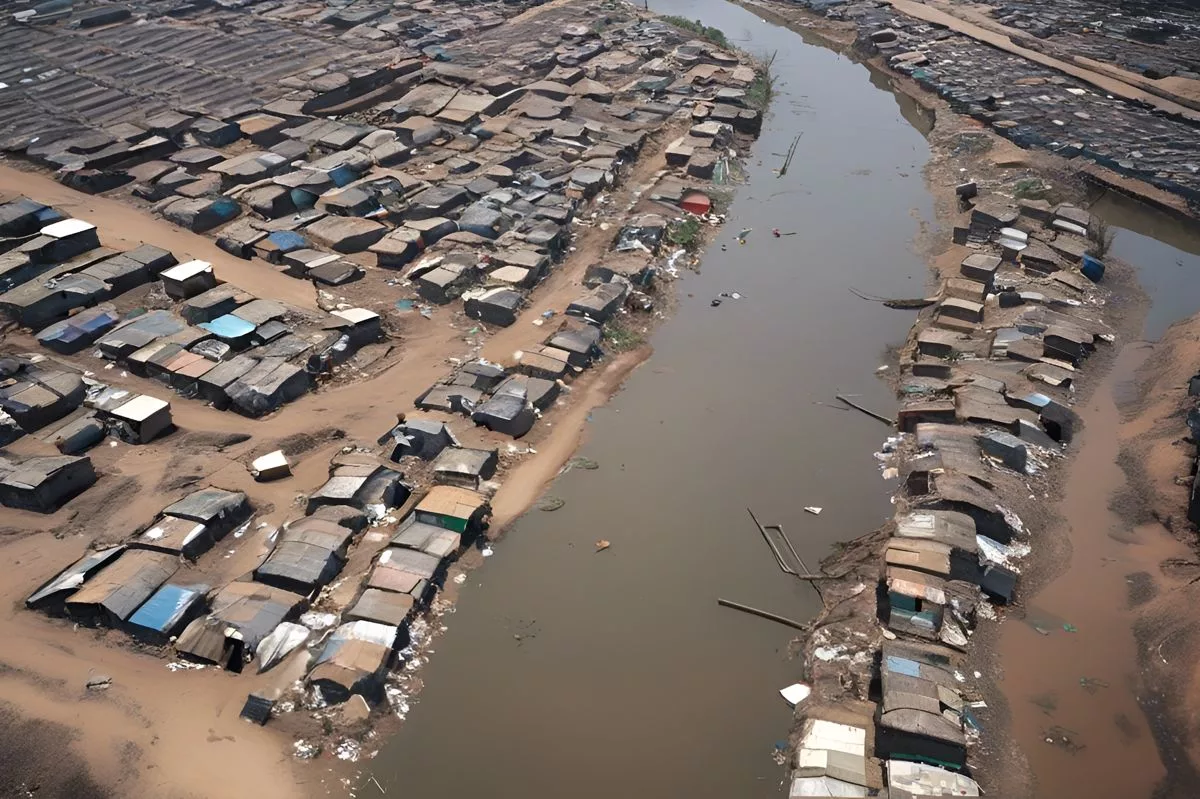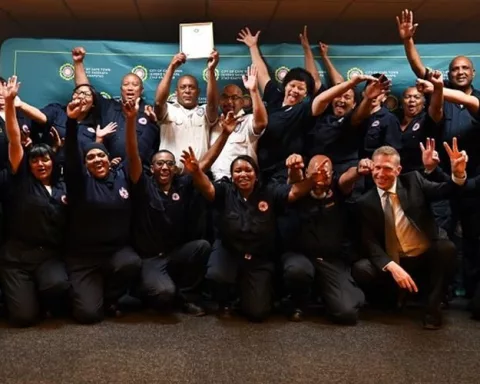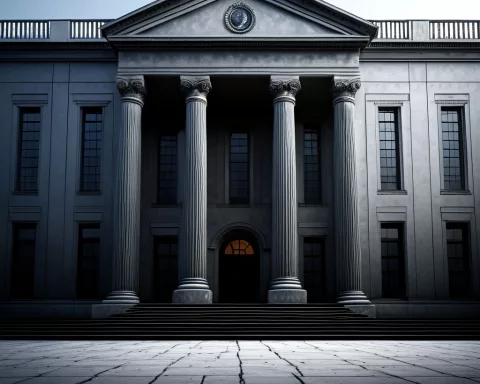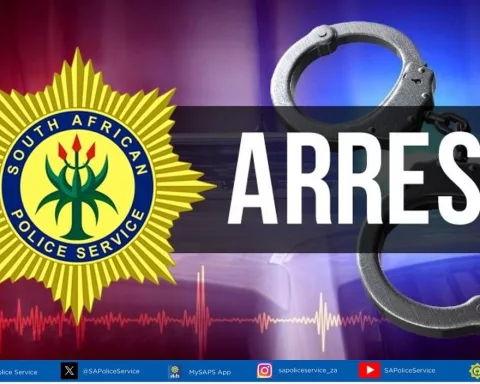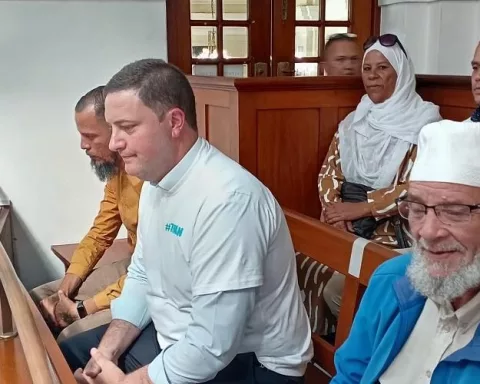In Nomzamo’s informal settlements, life is a tough struggle against pollution and waste. Stagnant sewage and garbage fill the streets, making it dangerous for children and the elderly. Residents have built wooden bridges to help kids cross the filthy water on their way to school, showing their resilience despite the harsh conditions. Broken promises from the city leave them feeling abandoned, as they wait for real solutions to their problems. The community is calling for better waste management and support, hoping for a cleaner, safer future for everyone.
What are the main challenges faced by residents in Nomzamo’s informal settlements?
Residents of Nomzamo’s informal settlements confront severe pollution and inadequate waste management, leading to health hazards, especially for vulnerable populations. Stagnant sewage, illegal dumping, and broken promises from authorities exacerbate their struggles, highlighting the urgent need for comprehensive solutions and community resilience.
In the heart of Nomzamo’s informal settlements in Strand, residents are engaged in a relentless battle with their polluted surroundings. Overwhelming amounts of sewage and garbage overwhelm the open areas near their homes. Such chronic pollution poses a severe risk to the health of their most vulnerable members, particularly the young and the elderly.
Navigating Freedom Park’s Hazards
Walking through Freedom Park, one cannot miss the stagnant sewage seeping between the shacks. These filthy streams traverse the paths that schoolchildren use daily, creating both a navigational and health hazard. The canals and open spaces are littered with plastic waste, food scraps, discarded furniture, and even human excrement.
A glimpse near a City of Cape Town waste container reveals the gravity of the situation. Although neatly packed blue refuse bags and cleaning materials await collection, an illegal dump site festers nearby. Each drain the city clears clogs again in a few days, highlighting a cycle of temporary fixes rather than permanent solutions.
Community Resilience and Makeshift Solutions
In an act of community resilience, Freedom Park residents have built small wooden bridges to help students cross sewage-filled canals on their way to school. These makeshift structures provide a shaky but necessary passage over the fetid water below. Watching young children help each other, or receive assistance from parents, underscores the daily challenges they face.
Resident Zikhona Blaai, whose 11-year-old son often uses these crossings, mentions that while the City regularly distributes refuse bags, not all residents make use of them. The severity of the situation calls for more than just refuse bags; it demands a comprehensive approach to waste management.
Unfulfilled Promises and Persistent Needs
Community leader Lwazi Mlonyeni recalls a broken promise from 2014 when the community was assured of relocation to land in Makhaza. That land is now occupied, leaving the promise unfulfilled. Recent floods saw City disaster management officials documenting the damage and promising aid, yet no tangible assistance has arrived.
Ward 85 Councillor Chantal Cerfontein is awaiting feedback from the human settlements department after a site inspection aimed at identifying sewerage blockages and illegal dumping sites. She points out that while 100 Public Works workers are assigned to clean the community, residents also have a responsibility to maintain cleanliness. On the topic of relocation, another plot has been identified, but the bureaucratic process continues to drag on.
Future Waste Strategy and Public Consultation
On 17 September, the City invited residents to comment on its Waste Strategy, which includes plans to tackle illegal dumping, reduce landfill waste, and promote recycling. The public consultation period for this strategy extends until 18 October 2024, aiming to address the increasing waste management pressures as Cape Town’s population is projected to reach 5.8 million by 2040. Currently, the city manages around 2.1 million tonnes of waste annually, with daily waste generation sufficient to fill an Olympic-sized swimming pool.
The City reported that in 2023/24, illegal dumping reached approximately 15,000 tonnes per month. This staggering figure underscores the urgent need for effective waste management solutions. “Ensuring that all residents, including those in informal settlements, backyard dwellings, and small-scale rental units, have access to quality waste services is essential in transforming the waste sector,” the City emphasized.
Challenges and Prospects of Resettlement
City spokesperson Luthando Tyhalibongo confirmed that teams visited eight sites where infrastructure repair proved impossible due to illegally erected homes over sewerage lines. The City plans to relocate these residents, a necessary step to improve infrastructure and overall community conditions.
Tyhalibongo mentioned some positive agreements regarding relocation, which, if implemented, would allow various City departments to execute plans for infrastructural improvement, markedly benefiting the community.
Reflecting on Urban Challenges and Resilience
The plight of Nomzamo’s informal settlements reflects broader systemic issues faced by many urban areas grappling with rapid population growth, limited resources, and infrastructural decay. The situation in Freedom Park is a microcosm of the challenges informal settlements face worldwide. Historical and artistic movements often highlight the resilience and creativity of human communities amidst adversity, and the situation in Nomzamo is no exception.
The residents’ improvised solutions, community activism, and persistent efforts symbolize a profound narrative of struggle and hope. The systemic inefficiencies and broken promises from urban management stress the need for accountable governance and sustainable development practices. The future of Nomzamo’s informal settlements hinges on the city’s ability to uphold its commitments and address the root causes of such enduring issues.
Understanding the micro and macro dynamics of Nomzamo offers a window into the broader narrative of human tenacity and the ongoing fight for dignified living conditions amid systemic neglect. These themes resonate through history and art, reminding us of the persistent spirit of communities striving for better futures against formidable odds.
FAQ: Life in Nomzamo’s Informal Settlements
What are the main challenges faced by residents in Nomzamo’s informal settlements?
Residents of Nomzamo’s informal settlements struggle with severe pollution and inadequate waste management. Stagnant sewage and illegal dumping not only create health risks, especially for children and the elderly, but also highlight the urgent need for effective solutions and community resilience.
How are residents coping with the pollution in Freedom Park?
To navigate the hazardous conditions, residents have built makeshift wooden bridges to help children cross sewage-filled canals on their way to school. These structures, while unstable, provide essential passage over the polluted water, showcasing the community’s resilience in the face of adversity.
What has been the response of local authorities to the community’s needs?
Residents have expressed frustration over unfulfilled promises from city authorities, such as a relocation plan that was abandoned. Despite regular waste collection efforts, the community feels neglected, as they await substantial solutions to their ongoing challenges with waste management and infrastructure improvements.
What initiatives has the City of Cape Town proposed to address waste management issues?
The City recently invited residents to participate in a public consultation regarding its Waste Strategy, which aims to tackle illegal dumping and promote recycling. The consultation period runs until October 2024 and reflects the city’s commitment to improving waste management services, particularly in informal settlements.
What are the future prospects for resettlement and infrastructure improvement in Nomzamo?
City officials have confirmed plans for the relocation of residents living over sewerage lines, which is crucial for improving infrastructure. While progress is slow due to bureaucratic processes, there are positive agreements that, if implemented, could lead to significant enhancements in the community’s living conditions.
Why is the situation in Nomzamo significant beyond its local context?
The struggles faced by residents in Nomzamo’s informal settlements are indicative of broader systemic issues affecting urban areas worldwide. Rapid population growth, inadequate resources, and infrastructural decay are challenges many communities experience. The resilience and activism of Nomzamo’s residents underscore the universal fight for dignified living conditions amid systemic neglect.

